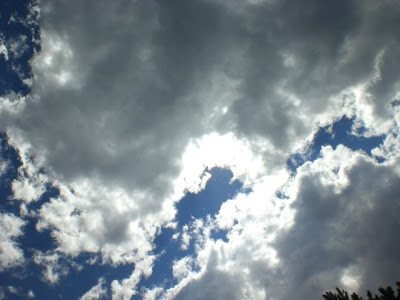The Eternal Sands of Sovereignty
 The dissertation writing continues today. It is such a horrible feeling when the issues that you take to heart and normally write about so passionately, get reduced to horrid chores of editing, re-writing, re-structuring. I guess it is a part of all dissertation project or large research projects such as this, where you start to loathe the work you are doing.
The dissertation writing continues today. It is such a horrible feeling when the issues that you take to heart and normally write about so passionately, get reduced to horrid chores of editing, re-writing, re-structuring. I guess it is a part of all dissertation project or large research projects such as this, where you start to loathe the work you are doing. I'm sure it will pass though, but in the meantime I can take a small amount of joy, when I get the chance to write some interesting things. Today I am finishing up the second draft of my methodology chapter, in which I discuss using "traces of sovereignty" to support my academic arguments about sovereignty and what we can learn or tease out from the concept through the political status of Guam. These traces of sovereignty come from everyday sources, my blog, my email account, my interactions with people. As I wrote today:
I'm sure it will pass though, but in the meantime I can take a small amount of joy, when I get the chance to write some interesting things. Today I am finishing up the second draft of my methodology chapter, in which I discuss using "traces of sovereignty" to support my academic arguments about sovereignty and what we can learn or tease out from the concept through the political status of Guam. These traces of sovereignty come from everyday sources, my blog, my email account, my interactions with people. As I wrote today:They are traces, fragments of discourse which circle around the link or lack thereof between Guam and the concept of sovereignty. They come from Chamorros of all shapes and colors, seeking for sovereignty for their island, or actively seeking less. They come from US politicians, military commanders, Chamorro sovereignty activists, Chamorros seeking a closer relationship to the United States, and those wishing to move further away, whether politically or culturally. There is no one single way in which these statements emerge, they are found all throughout the discursive formation that is Guam. As I have conducted my research I literally find them everywhere, in emails, letters to the editor, blog posts, newspaper articles, documentaries, activist literature, off-hand remarks, statements by politicians and members of the United States military and stories.In writing a series of sections justifying the use of this evidence as central to my analysis, I wrote up the following sentence, which ended up striking a deep nerve for me.
The evidence that I call traces of sovereignty, appear as traces or mere fragments in contrast to the vastness or the formalism of sovereignty as concept that sutures the globe. They represent ephemeral gestures, short gasps, which flicker and fade like the statues of Ozymandias surrounded by the eternal sands of sovereignty.
 The images from the poem, the sand and the statues didn't come from the comic Watchmen, but rather from a set of poems from the 19th century, one of which was written by Percy Bysshe Shelley. The poem titled Ozymandias is much quoted because of the many fehman images of time, loss, tragedy that are packed into just a few lines. I don't have time to write much more, so I'll just paste the words to the poems below:
The images from the poem, the sand and the statues didn't come from the comic Watchmen, but rather from a set of poems from the 19th century, one of which was written by Percy Bysshe Shelley. The poem titled Ozymandias is much quoted because of the many fehman images of time, loss, tragedy that are packed into just a few lines. I don't have time to write much more, so I'll just paste the words to the poems below:**********************************
OZYMANDIAS
by Percy Bysshe Shelley
I met a traveller from an antique land
Who said: Two vast and trunkless legs of stone
Stand in the desert. Near them on the sand,
Half sunk, a shatter'd visage lies, whose frown
And wrinkled lip and sneer of cold command
Tell that its sculptor well those passions read
Which yet survive, stamp'd on these lifeless things,
The hand that mock'd them and the heart that fed.
And on the pedestal these words appear:
"My name is Ozymandias, king of kings:
Look on my works, ye Mighty, and despair!"
Nothing beside remains. Round the decay
Of that colossal wreck, boundless and bare,
The lone and level sands stretch far away.
On A Stupendous Leg of Granite, Discovered Standing by Itself in the Deserts of Egypt, with the Inscription Inserted Below
by Horace Smith
In Egypt's sandy silence, all alone,
Stands a gigantic Leg, which far off throws
The only shadow that the Desert knows:
"I am great OZYMANDIAS," saith the stone,
"The King of Kings; this mighty City shows
"The wonders of my hand." The City's gone,
Nought but the Leg remaining to disclose
The site of this forgotten Babylon.
We wonder, and some Hunter may express
Wonder like ours, when thro' the wilderness
Where London stood, holding the Wolf in chace,
He meets some fragments huge, and stops to guess
What powerful but unrecorded race
Once dwelt in that annihilated place.




Comments